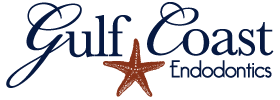Post-Surgical Instructions
After Surgery
Post-Surgical Instructions
The First 24 Hours After Surgery
Some bleeding may be expected during the first 24 hours after your dental surgery. Although this is common, it is still recommended that you limit your physical activity during this time in order to minimize bleeding from the surgical area. When you go to bed, you may want to cover your pillow with a towel or older pillowcase to protect your good linens.
Tenderness & Swelling
Swelling for the first week after surgery is common and nothing to cause alarm. In fact, sometimes the swelling may increase and peak 3 to 4 days after surgery. To help minimize swelling we suggest using ice packs intermittently…that means 15 minutes on, and then 15 minutes off, throughout the day until you are ready for bed. You don’t need a fancy ice pack for this, in fact, a bag of frozen peas wrapped in a dishtowel works great, forming itself to the area comfortably.
The surgical area may be tender for several days following your surgery. The tenderness you may experience should decrease slowly over the week as the area begins the healing process. Some tenderness may be present for several months after your surgery as the deep bony healing continues in the surgical area.
Medications & Prescriptions
After your surgical procedure, you may be given antibiotics a a precaution against bacteria near the surgical site. Please be sure to take the full course of prescribed antibiotics as directed by the doctor to insure that all of the bacteria is eliminated.
IMPORTANT: If you take birth control and antibiotics, an additional method of birth control is recommended through the completion of the cycle! Antibiotics may inactivate the birth control pills. If you have any questions regarding the interaction between your birth control method and antibiotics, please discuss this with your doctor or pharmacist.
As with any medication, please contact your doctor or pharmacist if you note any unusual side effects while taking antibiotics and be sure to carefully read all of the enclosed instructions and interactions that are included with your medication.
Brushing, Flossing & Warm Water Rinses
Two or three days after your surgery has been completed, carefully rinse the surgical area with warm water (salt may be added) after every meal. On day three, you may begin to brush the surgical area gently using a soft bristled brush. Continue to keep all other areas of your mouth brushed and flossed as usual.
After week one you may resume regular brushing and flossing of the entire mouth, including the surgical area. We know it’s a curiosity… but please do not lift your lip to examine the stitches as this may cause them to pull or tear. Your sutures are made of a material specially formulated to dissolve, and so early loss of a suture or two isn’t anything to be concerned about. This is quite normal and part of the healing process.
Food & Drink
After your oral surgery you will want to limit your intake to soft foods and liquids (broths, juice, gelatins, pureed vegetables, etc.). The liquids will help you to stay hydrated until you feel comfortable chewing soft foods. Keep food on the opposite side of the mouth, and avoid using a straw as sucking may cause additional bleeding at the surgery site. It is important to drink plenty of fluids (five to six glasses) and do not skip meals. Skipping meals may cause you to become faint or dizzy. Soup may be the easiest way to get both nourishment and liquids while recovering from your surgery.
Two days after your surgery you may want to incorporate more solid (but still soft foods) into your diet. Be sure to cut food into small pieces, and avoid toast or foods that may irritate your sutures.
Smoking & Chewing Tobacco
Smoking or chewing tobacco products during the first week after your surgery will increase the risk of infection and hinder the healing process. Avoid both of these, especially during the period immediately following your surgery.
After-Hours Contact Information
All patients are given their endodontist’s home phone number along with our office number after treatment. If you have any after-hours questions, call your endodontist at home first, and if they are not available, call our office number. Our voice mail will notify one of our doctors to contact you promptly.
An endodontist is on call after-hours. If you need to call after hours, please have your pharmacy number available.
